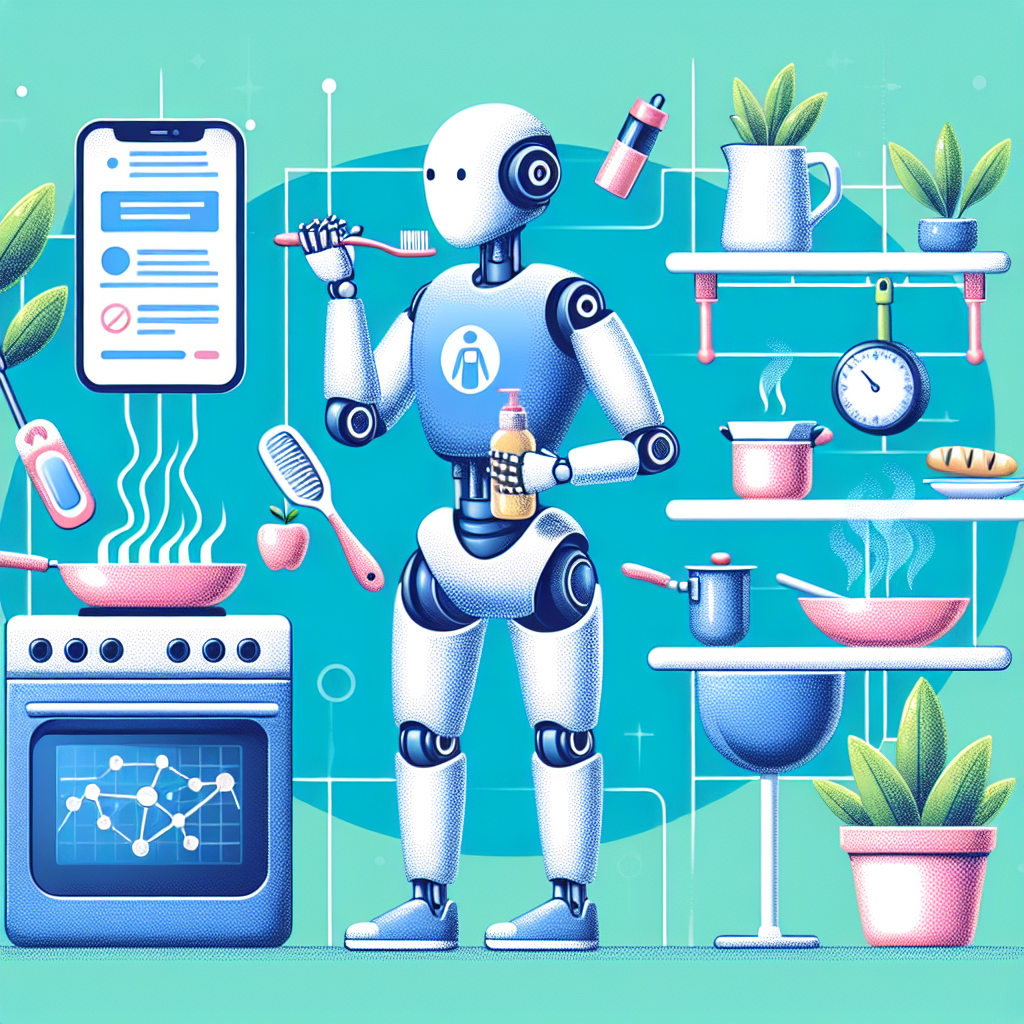The Influence of AI Development in Self-care
Artificial Intelligence (AI) has become an integral part of our daily lives, from the way we shop online to the way we interact with our smartphones. One area where AI has had a significant impact is in self-care. With the advancement of AI technology, we now have access to a wide range of tools and applications that can help us take better care of ourselves and improve our overall well-being.
AI technology is being used in various ways to enhance self-care practices, from personalized health and fitness recommendations to mental health support and mindfulness tools. In this article, we will explore the influence of AI development in self-care and how it is shaping the way we approach our health and well-being.
Personalized Health and Fitness Recommendations
One of the most significant benefits of AI in self-care is its ability to provide personalized health and fitness recommendations. AI algorithms can analyze data from various sources, such as wearable devices, health apps, and medical records, to create a comprehensive profile of an individual’s health status and needs. This information can then be used to generate personalized recommendations for diet, exercise, and lifestyle changes that can help improve overall health and well-being.
For example, AI-powered fitness apps can track a user’s activity levels, monitor their progress, and provide personalized workout plans based on their goals and preferences. These apps can also offer real-time feedback and motivation to help users stay on track and achieve their fitness goals.
Similarly, AI-powered nutrition apps can analyze a user’s dietary habits, recommend healthy meal options, and track their nutrient intake to ensure they are getting the right balance of nutrients for optimal health. These apps can also provide personalized meal plans and recipes based on the user’s dietary preferences and restrictions.
Mental Health Support
AI technology is also being used to provide mental health support and resources to individuals who may be struggling with stress, anxiety, or depression. AI-powered chatbots and virtual therapists can offer personalized support and guidance to help individuals manage their mental health and well-being.
For example, Woebot is an AI-powered chatbot that uses cognitive-behavioral therapy techniques to help users manage their emotions, set goals, and develop healthy coping strategies. Woebot can provide support 24/7 and is designed to be a confidential and non-judgmental resource for individuals seeking mental health support.
Mindfulness Tools
AI technology is also being used to develop mindfulness tools and meditation apps that can help individuals reduce stress, improve focus, and enhance overall well-being. These apps use AI algorithms to track a user’s meditation practice, provide feedback on their progress, and offer personalized recommendations for guided meditation sessions.
For example, Headspace is a popular mindfulness app that uses AI technology to create personalized meditation sessions based on the user’s goals and preferences. The app offers guided meditation sessions, breathing exercises, and mindfulness practices to help individuals cultivate a sense of calm and balance in their daily lives.
FAQs
Q: How does AI technology benefit self-care practices?
A: AI technology can benefit self-care practices by providing personalized health and fitness recommendations, mental health support, and mindfulness tools that can help individuals improve their overall well-being.
Q: Are AI-powered self-care apps safe to use?
A: AI-powered self-care apps are generally safe to use, but it is essential to ensure that the app complies with data privacy regulations and follows best practices for data security. Users should also be cautious about sharing sensitive personal information with AI-powered apps.
Q: Can AI technology replace traditional healthcare professionals?
A: AI technology cannot replace traditional healthcare professionals, but it can complement their work by providing support and resources to individuals seeking self-care practices. It is essential to consult with a healthcare professional for any medical concerns or conditions.
Q: How can individuals benefit from using AI-powered self-care tools?
A: Individuals can benefit from using AI-powered self-care tools by gaining personalized health and fitness recommendations, mental health support, and mindfulness tools that can help them improve their overall well-being. These tools can help individuals track their progress, set goals, and develop healthy habits for a more balanced and fulfilling life.
In conclusion, AI development has had a significant influence on self-care practices, providing individuals with personalized recommendations, mental health support, and mindfulness tools to help them improve their overall well-being. As AI technology continues to advance, we can expect to see even more innovative solutions that will empower individuals to take control of their health and well-being.

